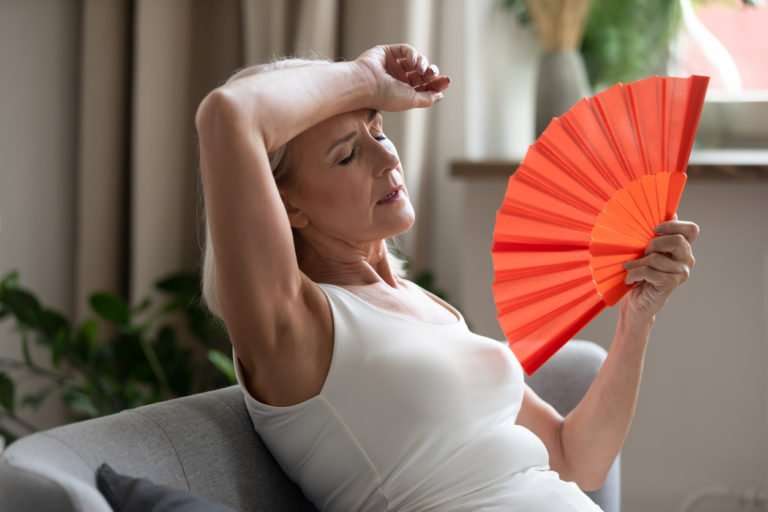do you have estrogen after menopause How to produce estrogen after menopause
After menopause, many women face challenges as their bodies go through significant hormonal changes. One of the primary hormones affected during this time is estrogen. Estrogen is essential for various bodily functions, including regulating the menstrual cycle, maintaining healthy bone density, and promoting cardiovascular health. In this post, we’ll discuss how to produce estrogen after menopause and the importance of maintaining its levels.
Why is Estrogen Important after Menopause?
Postmenopause signifies the end of a woman’s reproductive years and natural estrogen production. However, estrogen continues to play a crucial role in maintaining overall health and well-being. Its decline can lead to various symptoms, such as hot flashes, night sweats, vaginal dryness, sleep disturbances, and mood changes. Moreover, estrogen deficiency can also increase the risk of osteoporosis, heart disease, and cognitive decline.
Ways to Produce Estrogen After Menopause
While menopause causes a decline in estrogen production, there are several ways to promote its production and alleviate associated symptoms. Here are some strategies to consider:
1. Hormone Replacement Therapy (HRT)
HRT involves taking medications containing estrogen, either alone or combined with progesterone, to replace the hormones that the body no longer produces. It can help relieve postmenopausal symptoms and reduce the risk of bone loss and heart disease. However, it’s important to discuss the potential risks and benefits of HRT with a healthcare professional.
2. Phytoestrogens
Phytoestrogens are plant-based compounds that have estrogen-like properties. Including foods rich in phytoestrogens, such as soy products, flaxseeds, and whole grains, in your diet may help boost estrogen levels naturally. However, it’s important to consume these foods in moderation and consult with a healthcare professional before making significant dietary changes.
3. Regular Exercise
Sustaining an active lifestyle can have positive effects on estrogen production. Engaging in weight-bearing exercises, such as walking, jogging, or strength training, can help maintain bone density and promote overall hormonal balance in the body. Exercise also contributes to overall cardiovascular health and helps manage weight, which can be beneficial during the postmenopausal period.
The Importance of Estrogen after Menopause
Estrogen plays a vital role in maintaining women’s health even after menopause. Apart from its direct impact on symptom management, maintaining optimal estrogen levels can help reduce the risk of chronic conditions associated with aging:
1. Osteoporosis
Estrogen helps regulate bone metabolism and preserve bone density. Its decline during menopause can lead to accelerated bone loss. Ensuring adequate estrogen levels can help prevent osteoporosis and reduce the likelihood of fractures.
2. Heart Disease
Estrogen has a protective effect on the cardiovascular system. It helps maintain healthy blood vessels and regulates cholesterol levels. Postmenopausal women often experience an increased risk of heart disease due to decreased estrogen levels. Therefore, promoting estrogen production may help reduce this risk.
3. Cognitive Function
Estrogen has been implicated in cognitive function and may play a role in reducing the risk of cognitive decline and dementia. Some research suggests that estrogen therapy in postmenopausal women may help protect against cognitive impairments, including Alzheimer’s disease.
 It’s important to remember that the strategies mentioned above may not be suitable for everyone, and individual needs may vary. Consulting with a healthcare professional is crucial to determine the most appropriate approach to addressing estrogen levels after menopause.
It’s important to remember that the strategies mentioned above may not be suitable for everyone, and individual needs may vary. Consulting with a healthcare professional is crucial to determine the most appropriate approach to addressing estrogen levels after menopause.
Conclusion
While menopause brings about significant changes in a woman’s hormonal balance, it’s possible to support estrogen production and maintain overall health. Incorporating hormone replacement therapy, phytoestrogen-rich foods, regular exercise, and other lifestyle modifications can positively impact postmenopausal symptoms and reduce the risk of associated health concerns. Remember to consult with a healthcare professional to develop a personalized plan that meets your specific needs and ensures safe and effective management of estrogen levels.
 If you are searching about Estrogen and Hormone Replacement Therapy - Integrative Rheumatology of you’ve visit to the right web. We have 5 Images about Estrogen and Hormone Replacement Therapy - Integrative Rheumatology of like Do You Have Estrogen After Menopause - MenopauseTalk.net, Estrogen-Only Therapy Lowers Blood Clots | Health Nut News and also Do You Need Estrogen After Menopause - HealthyHormonesClub.com. Read more:
If you are searching about Estrogen and Hormone Replacement Therapy - Integrative Rheumatology of you’ve visit to the right web. We have 5 Images about Estrogen and Hormone Replacement Therapy - Integrative Rheumatology of like Do You Have Estrogen After Menopause - MenopauseTalk.net, Estrogen-Only Therapy Lowers Blood Clots | Health Nut News and also Do You Need Estrogen After Menopause - HealthyHormonesClub.com. Read more:
Estrogen And Hormone Replacement Therapy - Integrative Rheumatology Of
 drlans.orghormone therapy replacement estrogen symptoms menopause menopausal helps
drlans.orghormone therapy replacement estrogen symptoms menopause menopausal helps
Do You Need Estrogen After Menopause - HealthyHormonesClub.com
 www.healthyhormonesclub.comDo You Have Estrogen After Menopause - MenopauseTalk.net
www.healthyhormonesclub.comDo You Have Estrogen After Menopause - MenopauseTalk.net
 www.menopausetalk.netEstrogen-Only Therapy Lowers Blood Clots | Health Nut News
www.menopausetalk.netEstrogen-Only Therapy Lowers Blood Clots | Health Nut News
 www.healthnutnews.commenopause estrogen climacteric vaginal
www.healthnutnews.commenopause estrogen climacteric vaginal
How To Produce Estrogen After Menopause - MenopauseTalk.net
 www.menopausetalk.netEstrogen and hormone replacement therapy. Do you need estrogen after menopause. Hormone therapy replacement estrogen symptoms menopause menopausal helps
www.menopausetalk.netEstrogen and hormone replacement therapy. Do you need estrogen after menopause. Hormone therapy replacement estrogen symptoms menopause menopausal helps